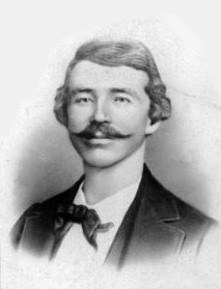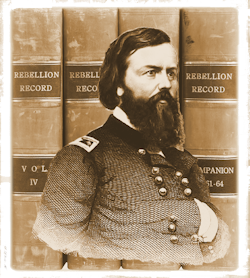February 18.—A skirmish occurred at Independence, Mo., between a detachment of Ohio cavalry and a band of rebels, headed by Quantrel and Parker. The latter were routed, with a loss of three killed, several wounded, and several taken prisoners. A quantity of arms was also captured. The Federal loss one killed and three wounded.—(Doc. 47.)
—This morning, Gov. Rector, of Arkansas, issued a proclamation, drafting into immediate service every man in the State subject to military duty, to respond within twenty days.—Memphis Appeal, February 19.
—The Constitutional Convention in session at Wheeling, Va., adjourned this evening, after fifty-nine days’ session. The Free State measure was defeated. Commissioners were, however, appointed, with powers to reassemble the Convention in case the new State was recognised by Congress.— National Intelligencer, February 20.
—In the British Parliament, John Bright made a strong speech denouncing the policy of the English government as to the Trent affair, and was answered by Lord Palmerston. Earl Russell explained the case of Mr. Shaver, a British subject imprisoned in Fort Warren, sustaining the action of the American Government.
—At Baltimore, Md., S. S. Wills, the publisher, and Thomas S. Piggott, editor of The South, were arrested and taken to Fort McHenry.
—The first session of the Congress of the “permanent” government of the Confederate States, was opened at noon to-day in the capitol at Richmond, Va., Vice-President-elect, Alexander H. Stevens, of Georgia, occupying the chair in the Senate. Nineteen Senators were present, and a quorum of Representatives. After the election of proper officers, and a speech from Thomas S. Bocock, of Virginia, Speaker of the House of Representatives, the “permanent” Congress was declared duly organized.—(Doc. 48.)
—The Thirteenth regiment of Maine volunteers, under the command of Colonel Neal Dow, left Camp Beaufort, Augusta, for the seat of war.
—Flag-officer Goldsborough and Brig.-Gen. Burnside issued a proclamation at Roanoke Island, explaining the object of their mission, declaring the course they intend to pursue, and inviting the inhabitants of North-Carolina to separate themselves from the malign influence of the bad men in their midst, and to return to their allegiance.—(Doc. 49.)
—Howell Cobb, R. Toombs, M. J. Crawford, Thomas R. R. Cobb, members from Georgia, have issued an address to the people of that State, on relinquishing their seats in the provisional Congress of the Confederate States. They call upon the people of Georgia to exert every nerve, and strain every muscle, to repress the invaders. Though acknowledging the Southern inability to cope with the resources, numbers, equipments and munitions of war of the North, they urge the confederates to provide against these odds by “desperate courage, unflinching daring, and universal self-sacrifice.” They warn the Georgians against being lulled into a fatal security, and incite them to prepare for all contingencies, by arming every woman and child with a firebrand, that nothing but “blackness and ruin” may “welcome the vandals.”
They recognise with gratitude the hand of Providence in preserving the Confederacy from these who, having complete control of the seas, and an immense army, “disciplined to the unthinking stolidity of regulars,” were preparing to “crush them with a giant’s grasp.” Finally they impress upon them the importance of an unshaken faith in God, declare their confidence in the ultimate issue of the struggle, and a belief that their children’s children will rise up to call them “blessed.” —(Doc. 50.)










